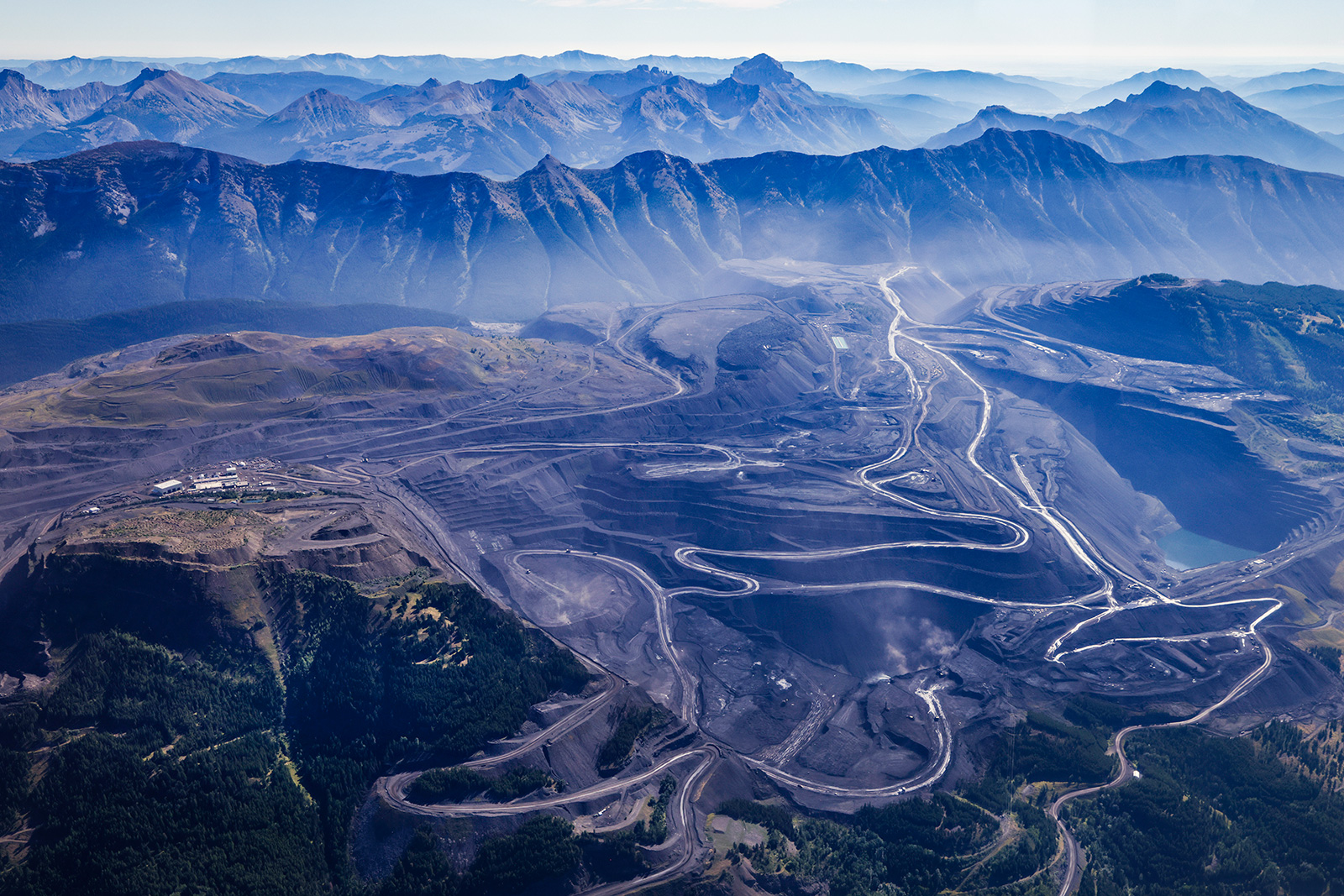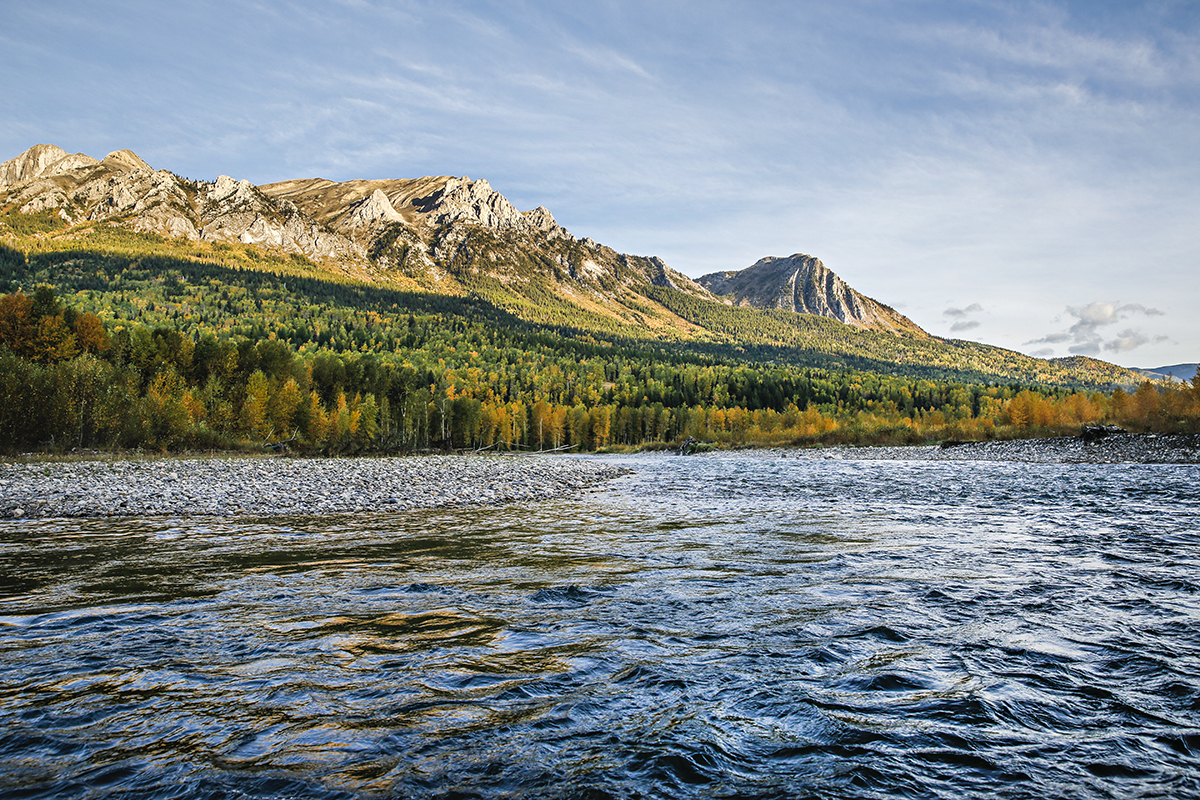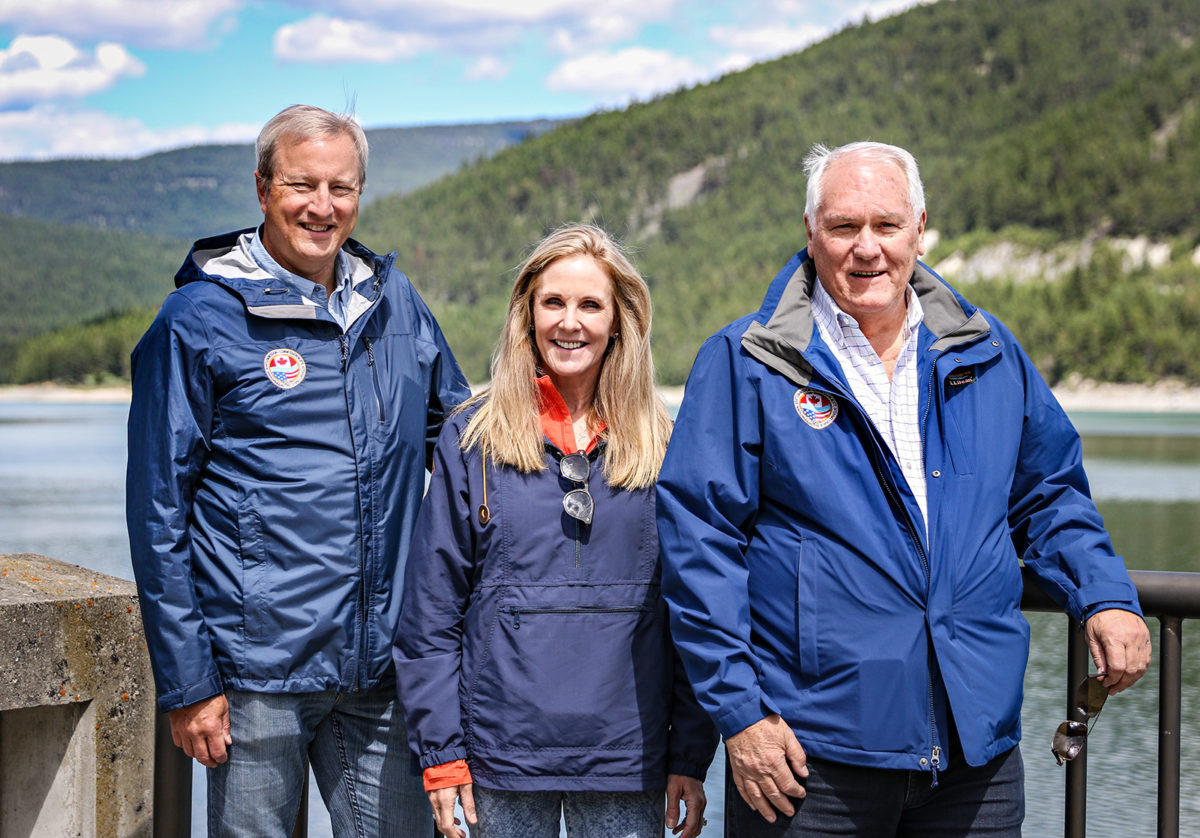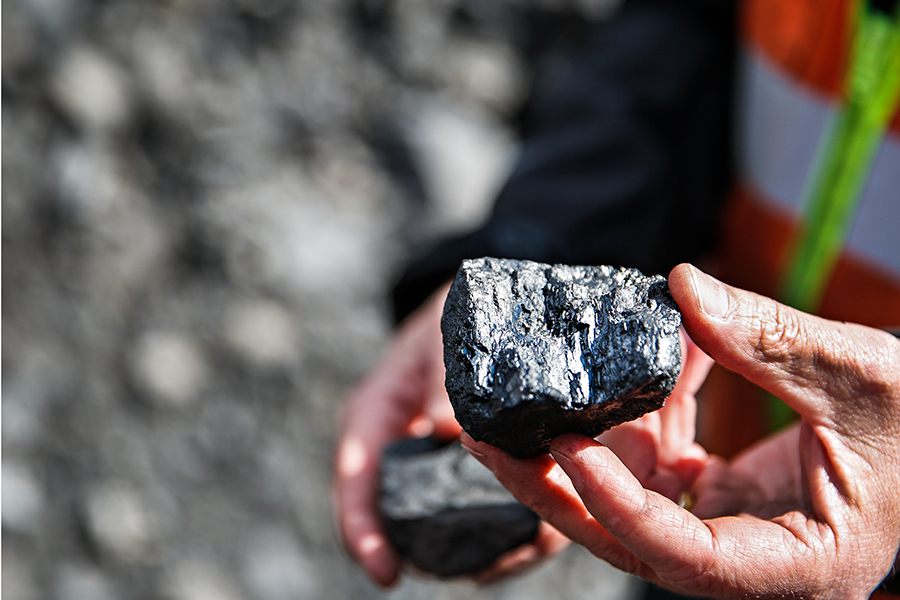Tribal and First Nation Governments Craft Proposal to Address Transboundary Mining Concerns
The Confederated Salish and Kootenai Tribes and the Ktunaxa Nation sent President Biden and Prime Minister Trudeau a proposal to refer coal mining pollution on the Elk-Kootenai watershed to the International Joint Commission
By Tristan Scott
With an end-of-summer deadline looming over bilateral negotiations for the U.S. and Canada to strike an agreement over how to address decades of coal mining pollution in the transboundary Elk and Kootenai watershed, a coalition of Indigenous and First Nation governments has submitted a proposed solution of its own — one that includes a reference to the International Joint Commission (IJC) and demands tribal engagement.
The IJC was established by the Boundary Waters Treaty for the express purpose of addressing international issues related to transboundary pollution. In this case, a reference would appoint an independent body to provide mediation to the State Department and Global Affairs Canada (GAC) to resolve the stalemate over mining pollutants spilling across the border.
Through its proposal, the coalition of tribal governments hopes to break up the stalemate that has stalled the process while also guaranteeing its participation.
“Our proposal contemplates the full involvement of our Nations in building long-term solutions to this problem,” Ktunaxa Nation Council Chair Kathryn Tennese said. “As the stewards of this place for more than 10,000 years, there can be no solutions or assessment of this watershed without deep and meaningful partnership with the Ktunaxa.”
For decades, open-pit coal mines located in the Elk Valley of southeast British Columbia have leached selenium, nitrate, and sulphate into the Elk and Kootenai rivers. Since 2012, Indigenous leaders from the Ktunaxa Nation, the Confederated Salish and Kootenai Tribes (CSKT) and the Kootenai Tribes of Idaho (KTOI) have been urging Canada and the U.S. to address the water quality crisis.
The proposal includes a reference to the IJC along with a Ktunaxa-Federal action plan. According to the plan, this “two-pronged approach” calls for an IJC-established Watershed Board to conduct “an independent, transparent and accountable scientific assessment of pollution in the watershed and perform ongoing monitoring, as well as the parallel need for a tribal action plan to implement solutions, restore the water quality and address current violations of the Boundary Waters Treaty, the U.S. Clean Water Act, and the Canadian Fisheries Act.”
“Canada and the U.S. created the IJC over 100 years ago, under the Boundary Waters Treaty, to address transboundary water issues exactly like this one. Our solution includes this IJC process because it is transparent, inclusive, and accountable,” said CSKT Chairman Tom McDonald.
“We’ve also included an action plan in addition to the IJC process because we recognize there is an immediate need for action to begin restoring these waters that are so central to the Ktunaxa people,” McDonald added. “Now all we need is for Canada and the U.S. to sign onto the Ktunaxa proposal so we can get to work.”
But getting Canada and the U.S. to sign on to the agreement has presented challenges, and the tribal governments have often found themselves excluded from the negotiations.

In March, President Joe Biden and Prime Minister Justin Trudeau issued a joint statement pledging to address the transboundary contamination crisis, saying the two governments “intend to reach an agreement in principle by this summer to reduce and mitigate the impacts of water pollution in the Elk-Kootenai watershed, in partnership with Tribal Nations and Indigenous Peoples.”
On Aug. 18, a State Department spokesperson confirmed that the executive agency had received the Tribes’ proposed solution. In an email to the Beacon, the spokesperson wrote, “We are committed to fulfilling the promises of President Biden and Prime Minister Trudeau’s March 2023 joint statement, which emphasized the importance of working in partnership with Tribal Nations and Indigenous Peoples.”
“The United States and Canada have a long history working together to protect our shared environment,” the spokesperson wrote. “We are discussing a range of possible actions to address the pollution to safeguard our shared waters, and respect and uphold Tribal sovereignty while employing responsible mining practices. The Biden-Harris Administration is committed to protect public health; conserve our lands, waters, and biodiversity; incorporate Indigenous Knowledge into shared decision-making; and deliver environmental justice to communities overburdened by pollution.”
A spokesperson from Global Affairs Canada (GAC) also confirmed receipt of the joint proposal and issued the following statement to the Beacon: “Canada is strongly committed to protecting freshwater resources, including in the Elk Valley. Pursuant to the Joint Statement issued by Prime Minister Trudeau and President Biden on March 24, 2023, discussions among our officials, and with Indigenous nations and tribes, have continued on this issue. We are committed to these ongoing efforts to work together to find an appropriate path forward to ensure the health of the watershed.”
However, neither agency provided a specific date by which an agreement would be finalized.
For the three tribal governments, the work to address the mining contamination cannot begin soon enough.
“We continue to see impacts of coal mining more than a hundred kilometers downstream of these coal mines,” Gary Aitken Jr., vice chairman of the KTOI, said. “We see our fish populations declining despite our own hatchery efforts to sustain them. We see our waters becoming worse. While pollution loads continue to increase, we see less than 20% of the selenium load being removed, despite nine years of implementation of a provincial plan to reduce and mitigate water quality concentrations. We are watching our river suffer as the regulators stand by and watch.”

One year ago, Canada and the U.S. were poised to refer the mining contamination issue to the IJC, but Canada abruptly halted further engagement. Given the years-long binational engagement process, as well as indications that a reference was forthcoming, First Nation leaders said they were “stunned” to learn via email that GAC “had unilaterally decided to reject the reference proposal.”
A subsequent public records request by Indigenous leaders revealed that Canada’s abandonment of an IJC reference in 2022 was the result of “intense pressure by industry and the Province of British Columbia,” according to the tribal governments.
According to tribal leaders, the B.C. and Canadian governments have stood by for decades as the mining industry wreaks havoc on transboundary waters, even as B.C.’s own Auditor General draws attention to the widespread, systemic non-compliance with the province’s own mining regulations. In the Elk-Kootenai watershed, which includes Lake Koocanusa reservoir in northwest Montana, decades of selenium contamination from metallurgic coal mines owned and operated by Teck Resources has damaged rivers and critical fish populations in Canada and the U.S.
Rising levels of selenium were first identified in the Elk River in the early 1990s and in 1998 the Elk Valley Selenium Task Force was formed to investigate selenium pollution. A quarter-century later, selenium levels continue to rise and have increased more than 500% in the past 30 years.

“But new leadership in British Columbia has resulted in a surprising but long overdue turn of events,” the Ktunaxa wrote. “Following the transboundary Ktunaxa proposal last month, British Columbia sent a letter to the Canadian Federal government indicating that the Province is now receptive to IJC involvement in the Kootenai watershed. With British Columbia — who has previously been opposed to IJC involvement — no longer standing in the way, Canada is now well positioned to sign on to the Ktunaxa proposal and finally meet its obligations to protect the environment under the Fisheries Actand honour its commitments under the United Nations Declaration on the Rights of Indigenous Peoples Actand the Boundary Waters Treaty.”
In the past three weeks, however, Canada has been silent on the Ktunaxa proposal. “This silence is puzzling given President Biden and Prime Minister Trudeau’s commitment to work in partnership with the Ktunaxa to reach an agreement by this summer,” the tribal governments wrote. “Ktunaxa continue to demonstrate their commitment to working with the U.S. and Canada to ensure that meaningful assessment and action occur. With only three weeks of summer left, Ktunaxa leadership await the Federal governments’ response.”